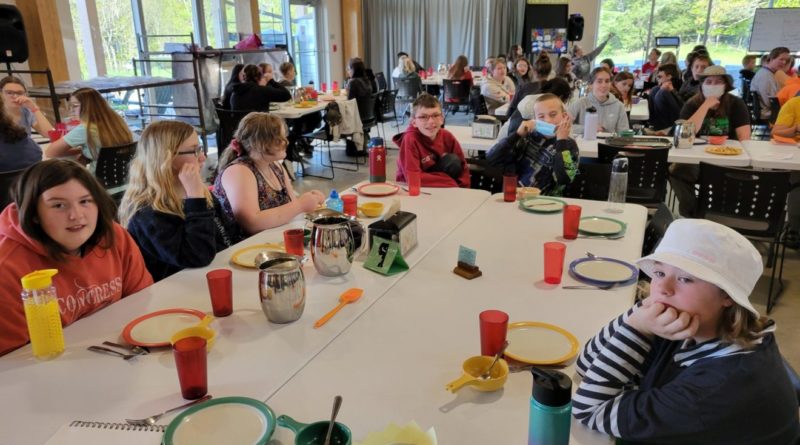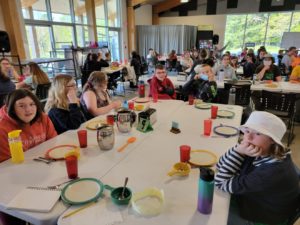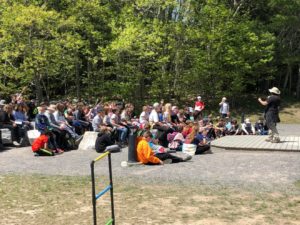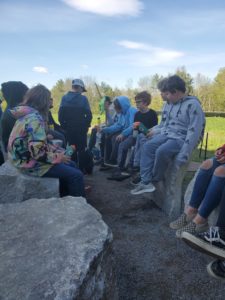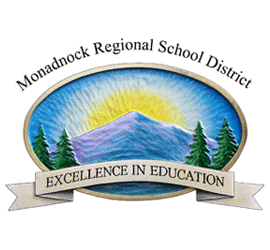Monadnock Sixth Graders Visit The Ecology School for Immersive, Five-Day Science Program
ANZEY — Superintendent Lisa A. Witte is pleased to share that Monadnock sixth graders recently took part in a multi-day immersive program focused on ecology.
The five-day, four-night trip to The Ecology School in Saco, Maine, renewed a longstanding tradition, with all of the District’s sixth-grade students taking part.
During their week at the school, from May 16-20, students attended daily lessons taught by the Ecology School’s resident experts in the field, with tie-ins to their regular classroom learning and the district’s curriculum. The trip is an annual affair that serves as a key element of students’ transition from elementary to middle school.
Each of the lessons focuses on ecological topics, including how humans and animals interact, and the impact of those interactions, as well as habitats, how creatures adapt to their surroundings, and what students’ places are in the natural world. Students are immersed in ecological learning through hands-on lessons on topics like food waste, using their meal times to see the impact of waste firsthand and working throughout the week to reduce their food waste at both an individual and community level.
“This trip is one of the best things we do as a district, and it’s an extraordinary opportunity for students to experience science in real life,” said Assistant Superintendent Jeremy Rathbun, who first visited The Ecology School as a teacher in the district in 2002. “It’s also an important moment in our students’ educational careers, as it brings together sixth graders from all of our schools for the first time ahead of their move to the middle school.”
The Ecology School is located at Riverbend Farm in Saco, and this year’s class was the first to attend the program at its new facility. It is an engaging, experiential ecosystem-based program that empowers students in elementary and middle school to discover the inner workings of the world around them and their connection to it.
Each day students took part in outdoor, unplugged E-STEM — environmental science, technology, engineering and math — lessons. They observed, before their own eyes, patterns in the landscapes around them and witnessed natural processes like cycles, change, and disturbance, which they’d learned about in their traditional classrooms.
###
